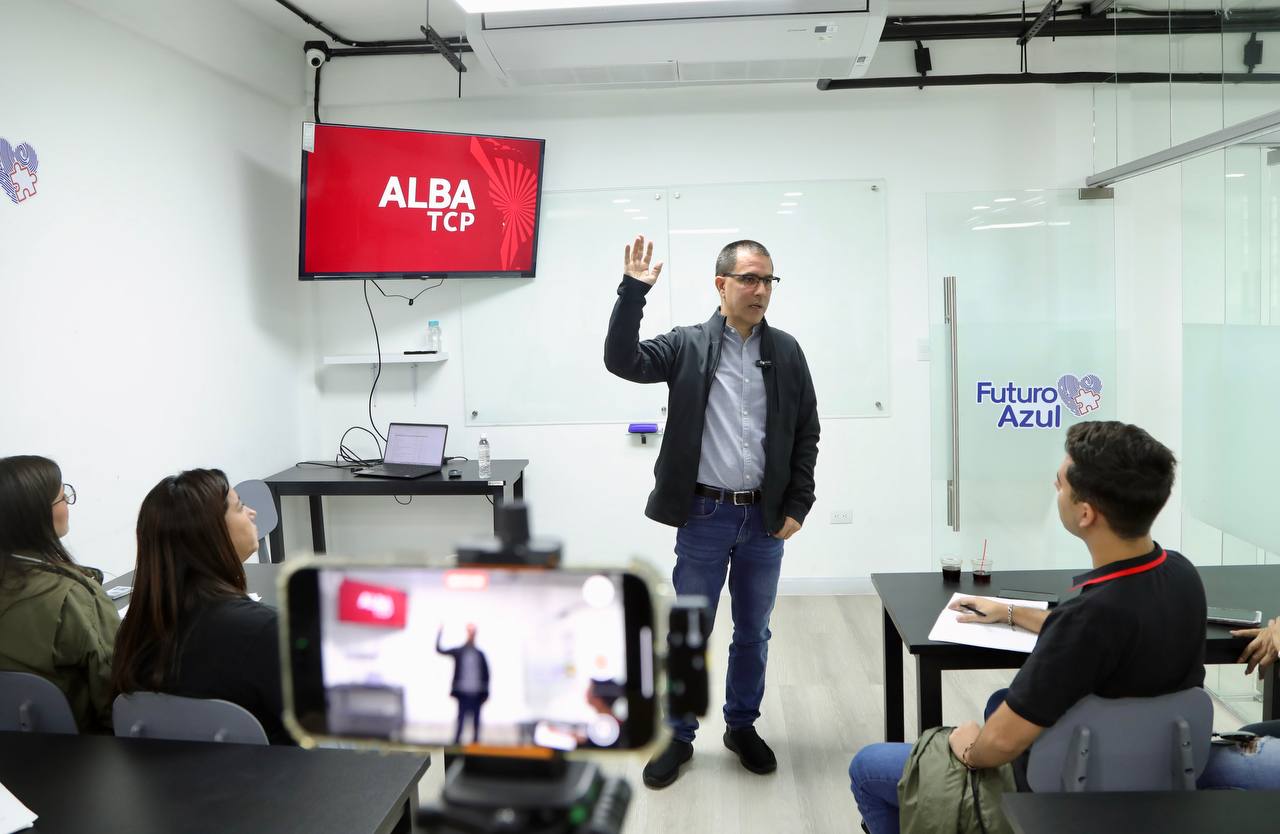Caracas, November 19, 2024. With the participation of youth representatives from political movements and parties across Latin America, a debate session was held this Tuesday at the headquarters of the Movimiento Futuro in Caracas. The discussion focused on the effects of unilateral sanctions and the role of the Bolivarian Alliance for the Peoples of Our America (ALBA-TCP) in the region, aiming to create an “ALBA model” where young participants could experience a plenary session of this integration organization.
This gathering, organized under a new deliberation model spearheaded by ALBA-TCP, is part of the lead-up activities for the alliance’s 20th anniversary, to be celebrated on December 14.
William Castillo, Venezuela’s Vice Minister for Anti-Blockade Policies, outlined how unilateral coercive measures have impacted various sectors in Venezuela, from the economy to sports. “We’ve witnessed Venezuelan athletes lose opportunities to compete because they can’t train abroad due to federations’ blockades, frozen accounts, or visa denials. These are direct sanctions against the country, and their consequences are very real,” he stated.
Castillo also highlighted other examples of sanctions, including the restrictions on the Venezuelan airline Conviasa, which is limited in its international operations; the seizure of the Citgo oil company by the United States; and the detention of diplomat Alex Saab while he was conducting humanitarian work on behalf of the Venezuelan people.
During the session, participants discussed specific cases of the sanctions’ impact, ranging from the deterioration of public services in Venezuela to the blockade of essential supplies to Cuba.
The Vice Minister explained how these restrictions undermine the capacity to maintain key sectors: “When there are no resources to repair electrical or water systems, the people directly suffer, and all of this is tied to these international financial measures.”
Jorge Arreaza, ALBA-TCP’s Executive Secretary, emphasized the importance of strengthening regional cooperation to tackle challenges like climate change and economic crises.
“The small Caribbean nations have been severely affected by these sanctions, which aim not only to weaken Venezuela but also an entire network of regional solidarity. It’s time to advance together toward a system of risk management and effective cooperation,” he remarked.
Arreaza also explained the principles, achievements, and goals of the alliance to participants, tracing its origins back to 2004 as an alternative to the Free Trade Area of the Americas (FTAA).
He presented ALBA as a beacon of regional unity, driven by the people as the true engine of progress. He further elaborated on its interconnection with mechanisms like CELAC, a fundamental representation of Simón Bolívar’s vision.
Arreaza described ALBA as a moral force for resistance and liberation, demonstrating an unparalleled capacity for solidarity rooted in humane, ethical, and anti-imperialist values.
He urged attendees to preserve the essence of ALBA-TCP as a platform for resistance and solidarity. “This model has shown that with limited resources but strong unity, we can face the most complex challenges. It’s not just about resisting; it’s about transforming adversity into opportunity,” he concluded.
The session ended with a commitment from the youth to continue fostering debate and action to counteract sanctions and strengthen regional unity. They also set sights on a future meeting to further develop the “ALBA-TCP Youth Model” in December 2024.
